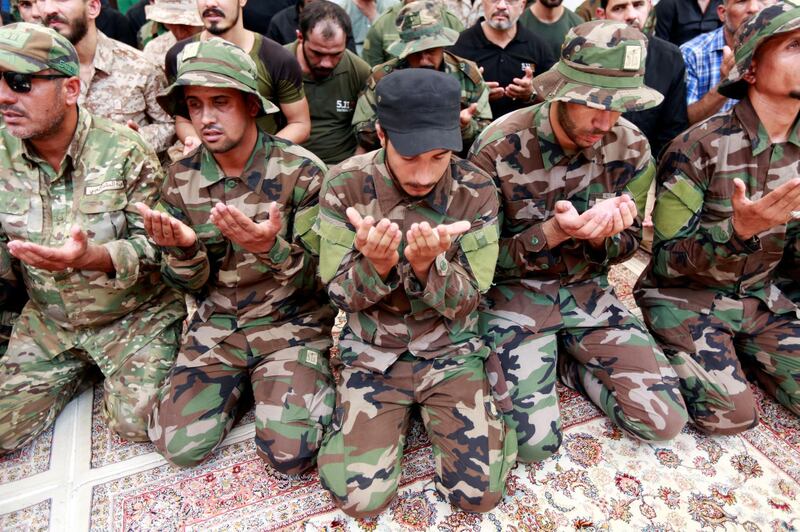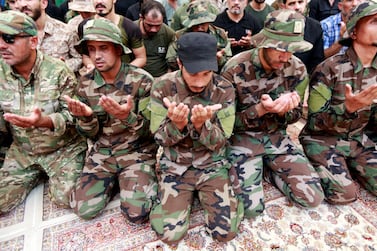Iraq yesterday said it will take the necessary diplomatic and legal measures to address actions that breached its sovereignty, amid alleged Israeli attacks in the country.
A series of explosions and drone sightings that targeted Iranian-backed Shiite militia bases triggered fears of a proxy war pitting Iran against the United States and Israel on Iraqi soil, or in its airspace.
The Iraqi government said it had carried out investigations into some of those incidents.
It said an unidentified drone was behind at least one incident and that another had been a premeditated act.
Baghdad has not made any specific accusations and has yet to publish the results of the investigations.
Iraq’s foreign ministry said it would wait for an official report before taking action at the United Nations.
“If it was proved that a foreign entity was involved in these operations, we will take all steps – first among them, going to the Security Council and the United Nations,” spokesman Ahmad Sahhaf said.
Although no one has taken responsibility for the attacks, US officials said Israel was behind at least one of them that killed two Iranian commanders on July 19.
The US statement came as a leading bloc in Iraq’s parliament, the Fatah Coalition, called for the withdrawal of American troops, saying that they were no longer needed in the country.
The bloc, which represents Iranian-backed paramilitary militia known as the Popular Mobilisation Forces, said yesterday that it held the United States responsible for the acts of Israeli aggression, “which we consider to be a declaration of war on Iraq and its people”.
The Fatah Coalition’s remarks came shortly after a drone strike in the western town of Al Qaim killed a PMF commander – the latest in a series of strikes apparently conducted by Israel against Iranian-backed militias in Iraq.
On Friday, a leading Iranian Shiite cleric, Grand Ayatollah Kazim Al Haeri, issued a fatwa prohibiting the presence of US forces in Iraq.
Mr Al Haeri’s fatwa came as the Iranian-backed militia blamed Washington for the recent attacks.
However, Iraqi members of parliament said that armed groups in the country were not supposed to take orders from foreign powers.
"They are all constitutionally under the Iraqi government," Sarkwat Shamsi, a member of the Iraqi parliament told The National.
“Any unit commander who reports to a foreign leader is considered [to have committed] treason against Iraq.
“If there is a war to be fought in Iraq, it must be up to the Iraqis to decide, not Iran or the US.”
Husham Al Hashimi, a security analyst who advises Iraq's government, told The National that the fatwa by Mr Al Haeri showed that the PMF's leadership considered it their religious and moral duty to retaliate against the masterminds of the attacks and anyone involved in the attacks, adding that they could also strike non-military infrastructure.
“It appears that the doctrine of the Hashed [PMF] leadership will [be to] take risks because of [Iran’s] refusal to abandon its missile capabilities,” Mr Al Hashimi said.
“Which means that a vicious cycle between the US, Israel and the Hashed commanders will be ongoing.”
The PMF was established in 2014 to fight ISIS, which had swept through about a third of Iraq’s territory.
It operates officially under Iraq’s armed forces and uses military unit names, but the US and Israel fear that some of its units are proxies of Iran.







